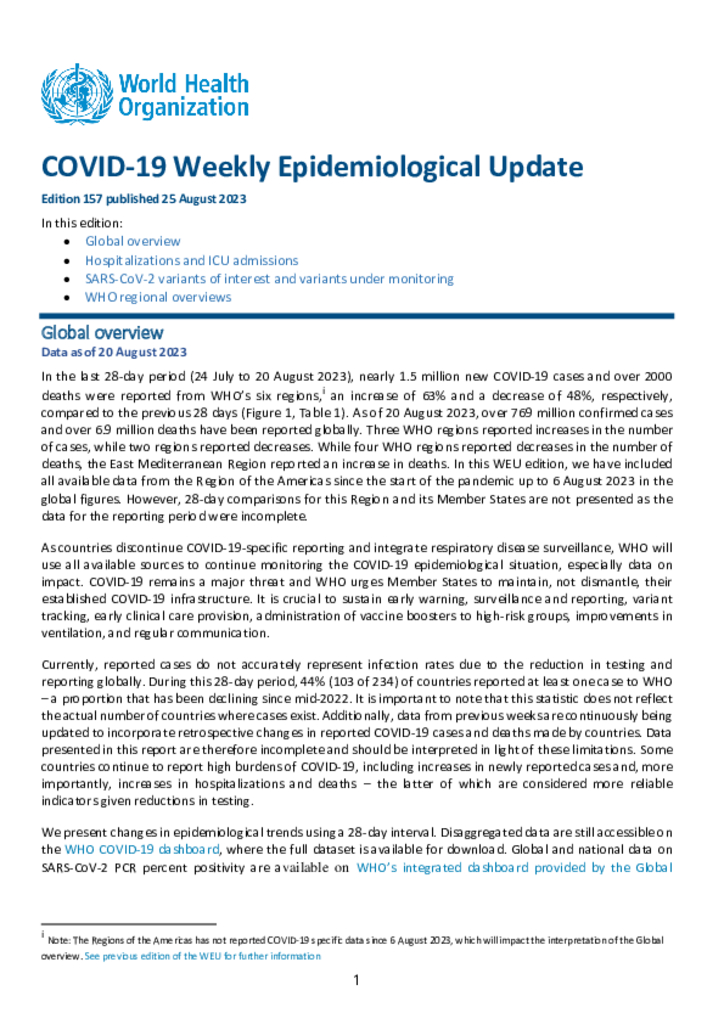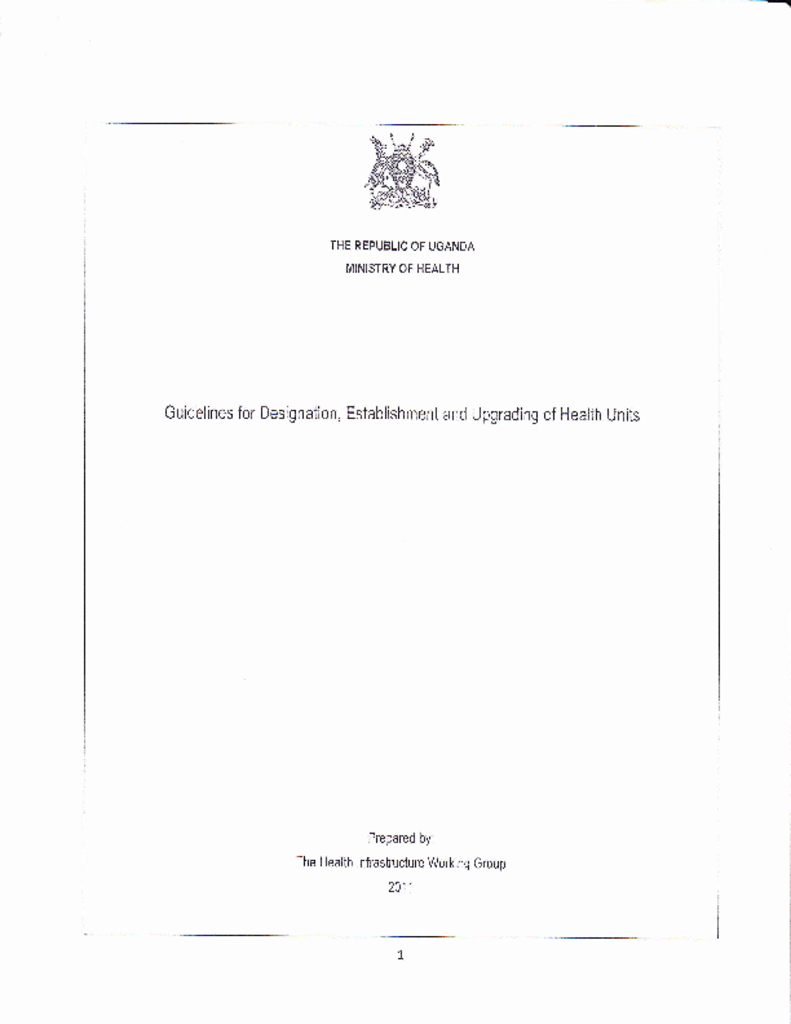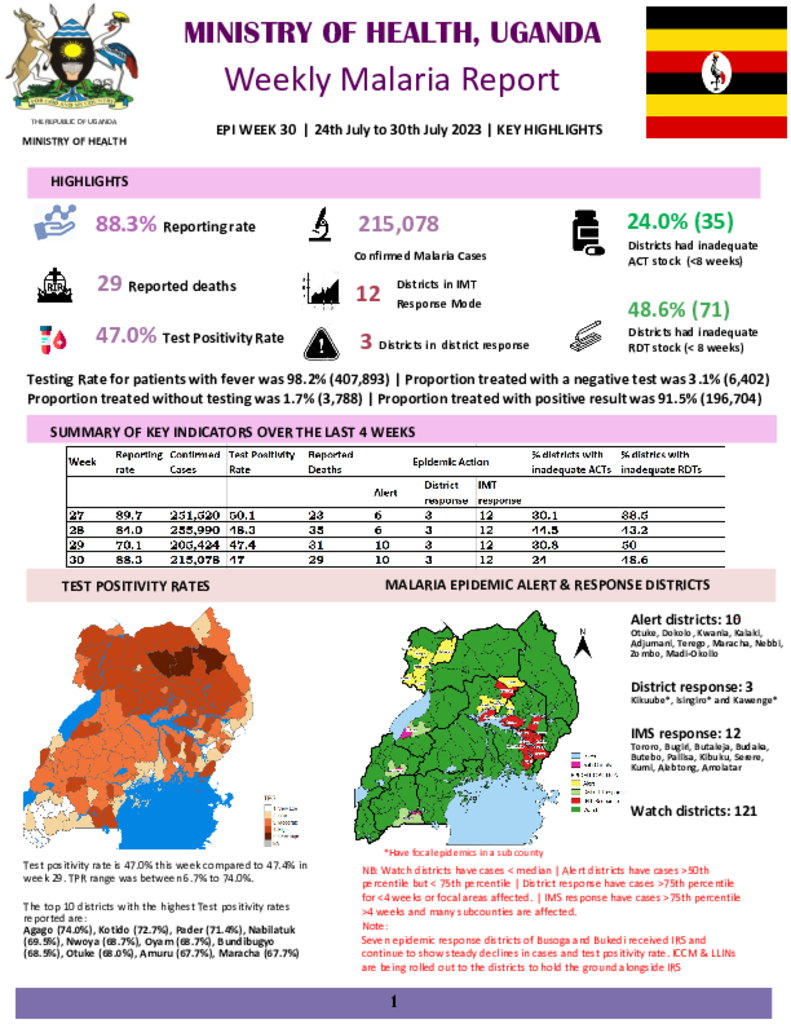This document is a statistical report on malaria activities that occurred at the various administrative levels during the reporting period.
The document is a statistical report on malaria activities occurring at the various administrative levels during the reporting period.
As countries discontinue COVID-19-specific reporting and integrate respiratory disease surveillance, WHO will use all available sources to continue monitoring the COVID-19 epidemiological situation, especially data on impact. COVID-19 remains a major threat and WHO urges Member States to maintain, not dismantle, their established COVID-19 infrastructure. It is crucial to sustain early warning, surveillance and reporting, variant tracking, early clinical care provision, administration of vaccine boosters to high-risk groups, improvements in ventilation, and regular communication.
This guidance for conducting early action reviews (EARs) results from a shared vision of the importance of collective learning during and following a public health event. That vision, and the close collaboration that led to the development of these resources, is shared among the World Health Organization’s (WHO’s) regional offices, headquarters, Member States and their partners.
This Weekly Malaria Report is a representation of the different malaria activities across the various administrative levels of the health sector.
This Weekly Malaria report is a statistical representation of the different malaria activities across the various administrative levels of the health sector.
These guidelines have been prepared by the Ministry of Health to enhance economy, efficiency and effectiveness in infrastructure development and harmonise it with other inputs to improve service delivery in the health sector. They are specifically aimed at providing criteria and procedures for designating the level of service and upgrading of health centres from one level to another as well as establishing new ones. These guidelines and procedures apply to both government and private-not-for-profit facilities.
This assessment report is the result of a combined effort of staff from the Uganda Ministry of Health, Maternal Child Health Technical Working Group–ETAT Steering Committee, United States Agency for International Development (USAID), USAID Maternal Child Health and Nutrition (MCHN) Activity, World Health Organization (WHO) Uganda, and all participating health facilities and health workers.
The National Budget speech addresses issues concerning the performance of the economy during the Financial Year 2022/2023 as well as national future economic prospects; accountability for the Financial Year 2022/2023 budget; the fiscal year 2023/2024 budget priority interventions; and financing strategy for Financial Year 2023/2024 budget.
The weekly report is a statistical document demonstrating the performance of Malaria indicators at the different administrative levels of the health sector.
This document is a statistical report highlighting the performance of the key nutrition program indicators for the month of May 2023.
This document is a statistical report highlighting the performance of the key nutrition program indicators for the month of April 2023.
















